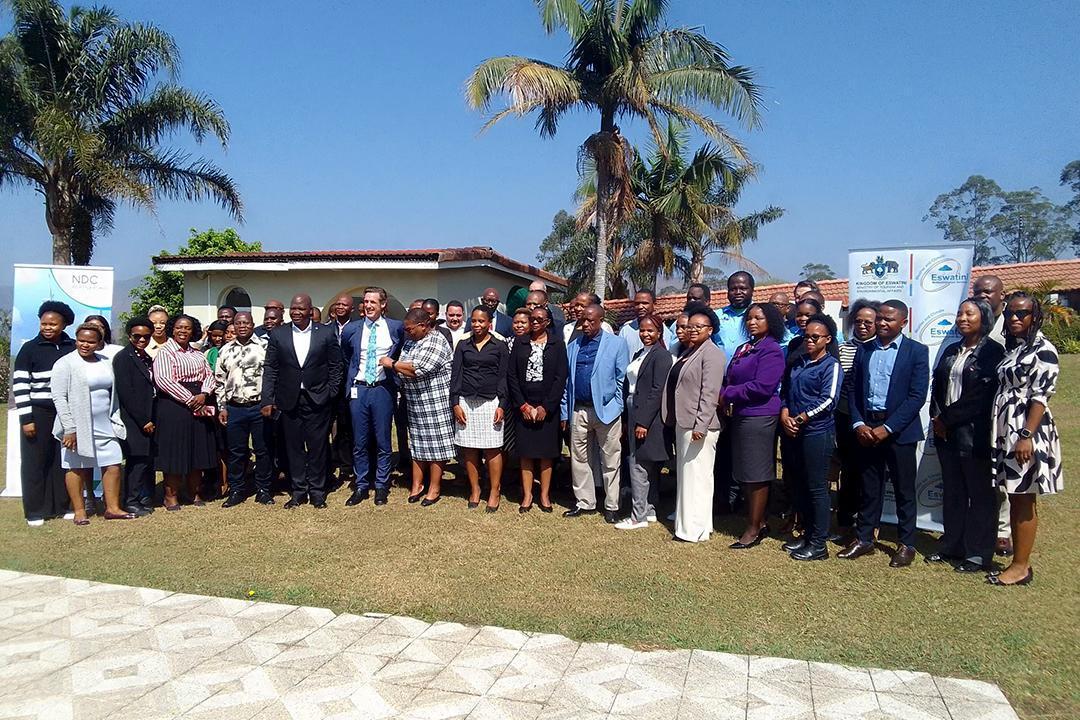Africa-Press – Eswatini. The Kingdom of Eswatini held a National Stakeholder Validation Workshop at Mountain View. The meeting brought together over 100 participants, including government officials, private sector representatives, civil society groups, youth and women’s organizations, traditional leaders, academia, and international partners.
The workshop aimed to review and validate the draft Nationally Determined Contributions (NDC 3.0) under the Paris Agreement, gather stakeholder input, and build national consensus ahead of Eswatini’s submission to the UNFCCC. The finalized NDC 3.0 is expected to be presented during the UN General Assembly in New York later this month and ahead of COP30 in Brazil.
Since submitting its NDC 2.0 in 2021, Eswatini has faced severe climate impacts, including droughts, flash floods, extreme weather, and biodiversity loss. These events have affected agriculture, water security, health, and economic stability, particularly for vulnerable groups such as women, youth, and rural communities. The NDC 3.0 aims to raise ambition and provide stronger mitigation and adaptation measures to address these challenges.
UNDP Resident Representative, Mr Henrik Franklin, praised the inclusive and evidence-based process. “Eswatini has built a strong foundation for climate action. The draft NDC 3.0 reflects the voices of all Emaswati. It is ambitious, implementable, and inclusive,” he said.
The NDC 3.0 includes:
A comprehensive greenhouse gas inventory produced by local scientists.
A review of NDC 2.0 to identify successes and gaps.
An inclusivity report based on consultations with youth, women, persons with disabilities, and communities.
A finance assessment showing that Eswatini mobilized nearly USD 449 million since 2018, while the full cost of measures is USD 2.4 billion.
Sectoral mitigation roadmaps and adaptation plans for agriculture, water, health, energy, and disaster risk management.
The draft also emphasizes a just energy transition, green growth, nature-based solutions, and biodiversity conservation. It aligns with national frameworks such as the National Development Plan, the Grand Plan for National Transformation, the National Adaptation Plan, and the National Biodiversity Strategy and Action Plan. A green finance framework has also been developed to attract sustainable investment.
Mr Franklin said the workshop is more than a technical exercise. “Validation is about ownership, accountability, and ambition. Every sector and every community has a role to play. Together, we can build a safer, greener, and more inclusive future for all Emaswati,” he said.
The Ministry of Tourism and Environmental Affairs said the finalized NDC 3.0 will guide national policy, investments, and development planning. It positions Eswatini as a regional leader in climate action while promoting inclusive green growth and resilience across the country.
For More News And Analysis About Eswatini Follow Africa-Press







